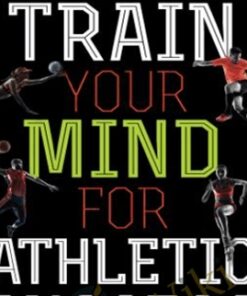-
×
 MyBeliefworks for Changing Beliefs About Work, Job, Career - Jimmy Mack
2 × $34.00
MyBeliefworks for Changing Beliefs About Work, Job, Career - Jimmy Mack
2 × $34.00 -
×
 Jacob Sokol - Quadruple Your Coaching Biz 19 expert sessions
1 × $43.00
Jacob Sokol - Quadruple Your Coaching Biz 19 expert sessions
1 × $43.00 -
×
 CBT Toolbox for Children and Adolescents
1 × $84.00
CBT Toolbox for Children and Adolescents
1 × $84.00 -
×
 10x Facebook Ads – Joanna Wiebe
1 × $123.00
10x Facebook Ads – Joanna Wiebe
1 × $123.00 -
×
 Adonis Golden Ratio + Add-ons - John Barban
1 × $102.00
Adonis Golden Ratio + Add-ons - John Barban
1 × $102.00 -
×
 1 Hour SEO | Become a Technical Marketer
2 × $40.00
1 Hour SEO | Become a Technical Marketer
2 × $40.00 -
×
 Dan On Demand - Dan Lok
1 × $202.00
Dan On Demand - Dan Lok
1 × $202.00 -
×
 10 Steps to Greater Confidence and Self-Esteem - Alexis Meads
1 × $42.00
10 Steps to Greater Confidence and Self-Esteem - Alexis Meads
1 × $42.00 -
×
 Awakening Through Your Difficult Emotions - Ram Dass
2 × $52.00
Awakening Through Your Difficult Emotions - Ram Dass
2 × $52.00 -
×
 4X Cash Compounder
3 × $30.00
4X Cash Compounder
3 × $30.00 -
×
 "PUNISHMENT" : New Devastating Striking Techniques and Drills
1 × $31.00
"PUNISHMENT" : New Devastating Striking Techniques and Drills
1 × $31.00 -
×
 101 Practical Strategies for the Treatment of GAD, Panic, OCD, Social Anxiety Disorder, Phobias and Insomnia - Jennifer L. Abel
1 × $124.00
101 Practical Strategies for the Treatment of GAD, Panic, OCD, Social Anxiety Disorder, Phobias and Insomnia - Jennifer L. Abel
1 × $124.00 -
×
 4X Traffic Maximizer - Charles Kirkland
1 × $33.00
4X Traffic Maximizer - Charles Kirkland
1 × $33.00 -
×
 2010 Edition – Market Analysis [Software (WIN)] – Timing Solution Advanced
1 × $232.00
2010 Edition – Market Analysis [Software (WIN)] – Timing Solution Advanced
1 × $232.00 -
×
 Awaken The Species - Neale Donald Walsch
1 × $62.00
Awaken The Species - Neale Donald Walsch
1 × $62.00 -
×
 'Quantum' Chakra Clearing and Balancing Series - Jonette Crowley
1 × $52.00
'Quantum' Chakra Clearing and Balancing Series - Jonette Crowley
1 × $52.00 -
×
 Opening the Golden Door of Sacred Geometry
1 × $79.00
Opening the Golden Door of Sacred Geometry
1 × $79.00 -
×
 10 MILLION DOLLAR SECRETS (CD and MANUALS) - DAN KENNEDY
1 × $19.00
10 MILLION DOLLAR SECRETS (CD and MANUALS) - DAN KENNEDY
1 × $19.00 -
×
 10X Formula Strategy – Simpler Trading
1 × $52.00
10X Formula Strategy – Simpler Trading
1 × $52.00 -
×
 3k In 30 Days – Tim Mai
1 × $144.00
3k In 30 Days – Tim Mai
1 × $144.00 -
×
 "Is Your Soul Allowing You To Heal?" -- All 7 Recordings in the Series (6 Hours of Audio Clearings)
3 × $83.00
"Is Your Soul Allowing You To Heal?" -- All 7 Recordings in the Series (6 Hours of Audio Clearings)
3 × $83.00 -
×
 Zyoga: The Yoga Sleep Ritual - Ann Dyer
1 × $21.00
Zyoga: The Yoga Sleep Ritual - Ann Dyer
1 × $21.00 -
×
 1-2-3 Magic: 3-Step Discipline for Calm, Effective and Happy Parenting - Thomas W. Phelan
1 × $84.00
1-2-3 Magic: 3-Step Discipline for Calm, Effective and Happy Parenting - Thomas W. Phelan
1 × $84.00 -
×
 Lawsuits and Wounds: The Latest Trends and Risk Reduction Strategies to Protect Your Patients and Your License - Ann Kahl Taylor
1 × $85.00
Lawsuits and Wounds: The Latest Trends and Risk Reduction Strategies to Protect Your Patients and Your License - Ann Kahl Taylor
1 × $85.00 -
×
 0-6 Pack Abs Phase 1 &2 - Tyler Bramlett
1 × $17.00
0-6 Pack Abs Phase 1 &2 - Tyler Bramlett
1 × $17.00 -
×
 5 Diamond Self-hypnosis SuperPack – Steve G Jones
1 × $144.00
5 Diamond Self-hypnosis SuperPack – Steve G Jones
1 × $144.00 -
×
 Train Your Mind for Athletic Success - Mental Preparation to Achieve Your Sports Goals - Jim Taylor
1 × $18.00
Train Your Mind for Athletic Success - Mental Preparation to Achieve Your Sports Goals - Jim Taylor
1 × $18.00 -
×
 $100K Academy – Charlie Brandt
1 × $63.00
$100K Academy – Charlie Brandt
1 × $63.00 -
×
 Amazon Ecomm Elite – Todd Snively and Chris Keef
1 × $301.00
Amazon Ecomm Elite – Todd Snively and Chris Keef
1 × $301.00 -
×
 10 Million Dollar Marketing Secrets – Dan Kennedy
1 × $41.00
10 Million Dollar Marketing Secrets – Dan Kennedy
1 × $41.00 -
×
 2-Day Certificate Training in Cognitive Behavioral Interventions for High-Functioning Autism: Improve Social Skills, Mood and Challenging Behaviors in Children, Adolescents & Young Adults - Cara Marker Daily
1 × $124.00
2-Day Certificate Training in Cognitive Behavioral Interventions for High-Functioning Autism: Improve Social Skills, Mood and Challenging Behaviors in Children, Adolescents & Young Adults - Cara Marker Daily
1 × $124.00 -
×
 Millionaire Challenge LIVE Replay and Legacy Collection – Jon Mac
1 × $94.00
Millionaire Challenge LIVE Replay and Legacy Collection – Jon Mac
1 × $94.00 -
×
 10 Activities to Enhance Social-Emotional Literacy in the Classroom: Transform Student Behavior from Chaos to Calm - Lynne Kenney
1 × $19.00
10 Activities to Enhance Social-Emotional Literacy in the Classroom: Transform Student Behavior from Chaos to Calm - Lynne Kenney
1 × $19.00 -
×
 AudioBook The Mental Game of Trading A System for Solving Problems with Greed, Fear, Anger, Confidence – Jared Tendler
1 × $23.00
AudioBook The Mental Game of Trading A System for Solving Problems with Greed, Fear, Anger, Confidence – Jared Tendler
1 × $23.00 -
×
 10 Brain-Based Strategies: Help Children Overcome Anxiety and Promote Resilience - Tina Payne Bryson
1 × $29.00
10 Brain-Based Strategies: Help Children Overcome Anxiety and Promote Resilience - Tina Payne Bryson
1 × $29.00 -
×
 Code 2 Conversions - Chris Rocheleau
1 × $135.00
Code 2 Conversions - Chris Rocheleau
1 × $135.00 -
×
 21 Day Inner Healing Journey - Jimmy Evans
1 × $20.00
21 Day Inner Healing Journey - Jimmy Evans
1 × $20.00
You may be interested in…
-
Add
 $0 to $100,000 on Amazon (Premium Live Training) – Matt Clark and Jason Katzenback
$0 to $100,000 on Amazon (Premium Live Training) – Matt Clark and Jason Katzenback
$1,997.00Original price was: $1,997.00.$193.00Current price is: $193.00. -
Add
 $200k Book Blueprint Training – Richelle Shaw
$200k Book Blueprint Training – Richelle Shaw
$797.00Original price was: $797.00.$96.00Current price is: $96.00. -
Add
 [BIG Collection Real Estate] Real Estate Web Academy – Great Real Estate Giveaway
[BIG Collection Real Estate] Real Estate Web Academy – Great Real Estate Giveaway
$999.00Original price was: $999.00.$88.00Current price is: $88.00. -
Add
 12 Dimensions of Mastery (Lifebook Challenge)
12 Dimensions of Mastery (Lifebook Challenge)
$499.00Original price was: $499.00.$92.00Current price is: $92.00. -
Add
 123 Manifest It - Marlenea Johnson
123 Manifest It - Marlenea Johnson
$735.00Original price was: $735.00.$152.00Current price is: $152.00.